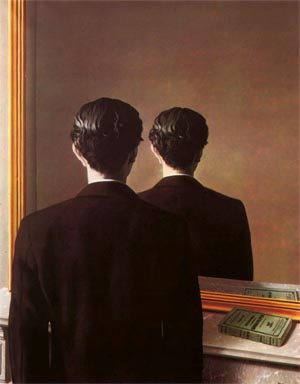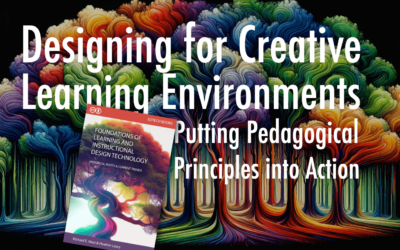Story in the NYTimes (forwarded to me by Leigh) titled: Professor as an open book, about how “professors of all ranks and disciplines are revealing such information on public, national platforms: blogs, Web pages, social networking sites, even campus television.” Of course the NYTimes is way behind the curve (as usual?)…
 I haven’t been on campus TV (at least not yet) but having some kind of a web presence for the entire time I have been a faculty member (almost a decade now), it is kind of surprising to see a NYTimes article about it, as if it were a new thing. I am quite deliberate about my presence on the web, trying to find the right balance between my professional and personal lives. This is part of a larger goal of integrating across these different roles and I have found developing my web-presence as being extremely valuable in helping me think through these issues.
I haven’t been on campus TV (at least not yet) but having some kind of a web presence for the entire time I have been a faculty member (almost a decade now), it is kind of surprising to see a NYTimes article about it, as if it were a new thing. I am quite deliberate about my presence on the web, trying to find the right balance between my professional and personal lives. This is part of a larger goal of integrating across these different roles and I have found developing my web-presence as being extremely valuable in helping me think through these issues.
As I said in my essay “On becoming a website” (I have blogged about it here and you can access the actual article here):
Teaching, I realized, could not be divorced from who I was. I was reminded of something I had read in Robert Pirsig’s Zen and the art of motorcycle maintenance (Pirsig. 1984). A character in the book, discussing how to write a perfect novel, says, writing a perfect novel is easy, first become perfect and then just write. Teaching I began to realize was similar. Though becoming perfect was an impossible goal, (could I, or anyone, ever become perfect?) what this story conveyed was that being a good teacher (or a writer) was much more than how we behaved when we were practicing our craft, standing in front of a class or sitting in front of a typewriter. Being a good teacher was somewhat like being a good parent. Being a good parent means becoming a better person overall not just when you are in front of your kids. (Isn’t it surprising how your language improves once you have children, even in situations when your kids are not around!). This is because we know the futility of putting on an act: the truth has a habit of coming out.
I remember as a student having almost no idea of what my professors were like outside of the classroom and I have always believed that these lines we draw between our personal and professional lives is extremely problematic. The NYTimes story ends with a great example of what the situation was like when I was growing up.
When a student spotted Mr. Gosling on a street near campus, he said, “She looked at me in, like, horror. Like, ‘Wait a minute, you have a life?’ The idea that I would continue to exist — it was sort of a violation of her expectations.”
It appears to me that these new tools (Web, blogs, Facebook, what have you) can help address this issue.






0 Comments